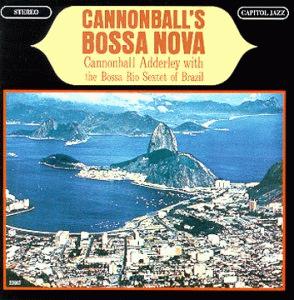
| Artist: | Julian Edwin "Cannonball" Adderley |
| Title: | Cannonball's Bossa Nova |
| Released: | 2002.09.23 |
| Label: | Capitol Records |
| Time: | 45:16 |
| Producer(s): | Orrin Keepnews |
| Appears with: | |
| Category: | Jazz |
| Rating: | ******.... (6/10) |
| Media type: | CD |
| Purchase date: | 2003.06.05 |
| Price in €: | 9,99 |
| Web address: | www.cannonball-adderley.com |